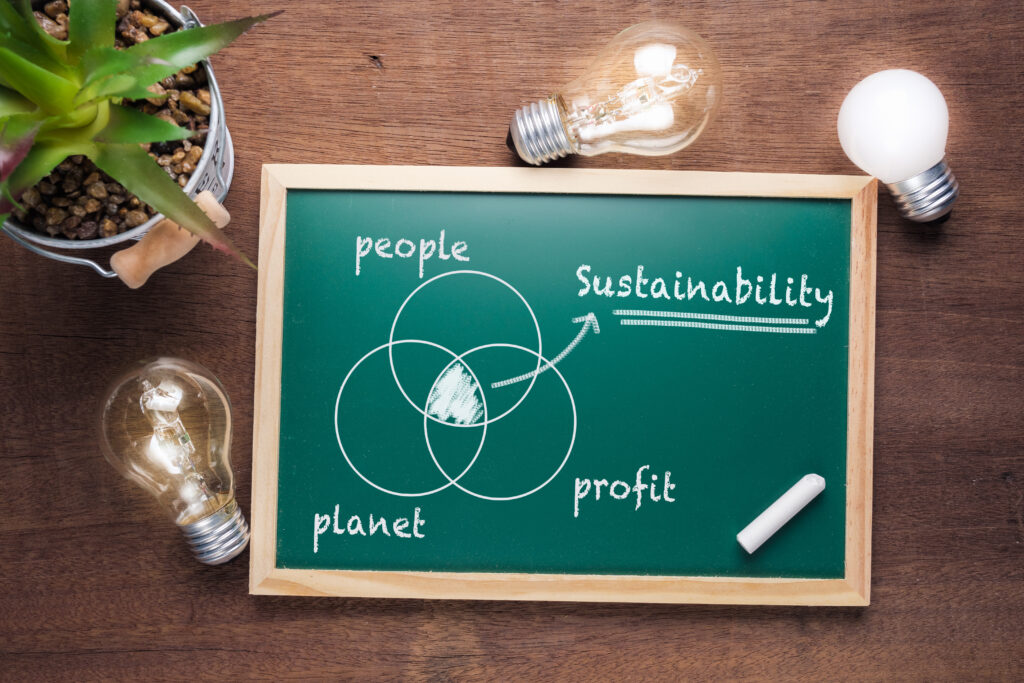
What retailers need to know about consumer interest in sustainability. Earth Day always brings additional attention to consumer interest in sustainability.
Here are 10 consumer-focused sustainability research findings all retailers should know.
Consumers care about sustainability
Seventy-eight percent of consumers claim a sustainable lifestyle is important and 30% of consumers are more likely to purchase sustainability-focused products, according to a recent NielsenIQ study.
Sustainable Brands reports 95% of U.S. consumers “at least sometimes” behave in ways that protect the planet, with 36% reporting that they “always or often” do so.
The pandemic drove additional interest in sustainability
The percentage of Millennial and Generation Z consumers ranking climate change and protecting the environment as a top three concern moved from 21% to 28% between 2020 and 2021. That’s according to the Deloitte Global Millennial and Gen Z Survey, which asked respondents to identify their top three concerns from a list of 17 potential priority concerns, including unemployment, health care and social issues. A July 2020 Capgemini Research Institute study reports 65% of all consumers are more mindful about the impact of their overall consumption as a result of the COVID-19 pandemic and that 79% changed purchasing preferences based on social and environmental responsibility concerns.
Market share for sustainability-focused products is increasing
Products marketed as sustainable now hold a 17% market share with significant growth throughout the pandemic, according to the New York University Stern Center for Sustainable Business. Its 2022 study of consumer packaged goods, a retail products category that includes food, beverage, cleaning and cosmetic products, finds that while sustainability-marketed products represent only 17% of market share, they delivered around one-third of all CPG growth. Products marketed as sustainable grew sales almost three times faster than traditional products.
Sustainability is a critical differentiator, not a primary purchasing driver
While sizeable majorities of consumers consider sustainability issues when making purchases, only 3% to 6% identify sustainability as their top “driver of choice.” Sustainability alone does not drive most purchases. Other considerations like product quality, price and availability remain key drivers.
Sustainability-related factors do drive purchasing decisions
Product claims focused on immediate consumer benefits that also provide broader sustainability benefits drive sales, according to the CMO Sustainability Accelerator toolkit. NRF consumer survey research finds that while 49% of consumers will buy “gently used” or “refurbished” products to “save money,” only 22% will do so to “be more sustainable.” A Boston Consulting Group study finds that in the beverages category, only 7% of consumers cite sustainability as one of the top three attributes they consider when making a purchase, but 43% are seeking beverages that are healthy, high-quality, guilt-free and socially responsible, which the study identifies as sustainability-related.
Cost remains a concern, but cost concerns are declining
Fewer consumers assume more sustainable products automatically cost more. A recent Shelton Group study notes that the percentage of consumers that think “green” means a product is too expensive dropped from 76% in 2015 to 42% in 2022. Similar drops occurred for “sustainable” (78% to 42%) and “eco-friendly” (76% to 40%) products. The decrease in concern about a “green premium” for more sustainable products can be explained by increased consumer experience buying the products. A Boston Consulting Group study, for example, documents that consumers who purchase more sustainable products perceive much smaller premiums than those who do not.
Consumers do not understand key sustainability terms
Scientists, sustainability advocates, retailers and brands are increasingly using terms like “circular economy,” “regenerative agriculture” and “carbon neutral” in their sustainability communications. NRF’s own survey research shows that few consumers understand these terms. While 67% of consumers are familiar with “recyclability,” only 11% are familiar with “circular economy,” 13% with “regenerative agriculture” and 34% with “carbon neutral.”
Younger generations understand sustainability differently
Younger consumers do not think about sustainability the same way as others. Older generations are more likely to define sustainability based on the materials and ingredients used to make a product, according to a University of Pennsylvania study, while the Gen Z cohort focuses more on the impacts of the manufacturing process. NRF’s consumer research shows 56% of consumers aged 65 or older prioritize recyclability as a top three sustainability desire versus only 24% of those aged 18 to 24.
Consumers are skeptical
Approximately 70% of consumers are wary of corporate sustainability commitments and claims. They worry about greenwashing and fear many commitments are a ruse to sell more products.
Consumers want more information
Eighty-seven percent of Americans claim sustainability certifications are important when purchasing a product. Consumers are reading product labels and conducting online research seeking more information about the sustainability of the products they purchase. Consumers want to buy more sustainable products and they want to know they are getting what they pay for.
Source: https://nrf.com